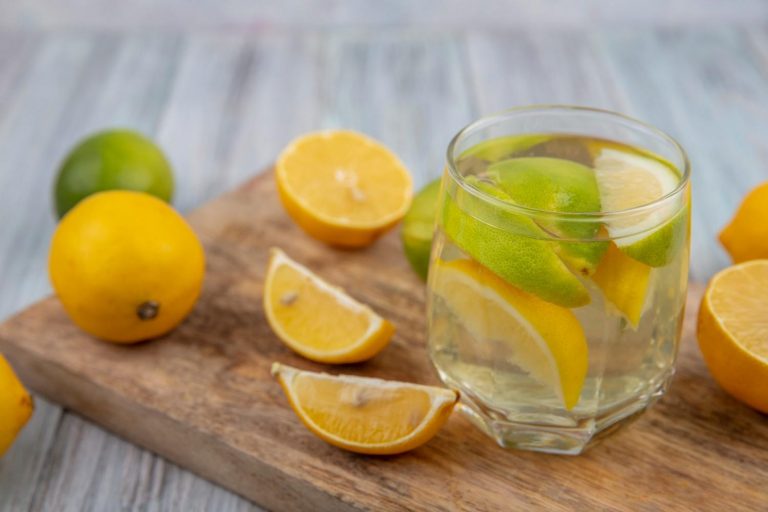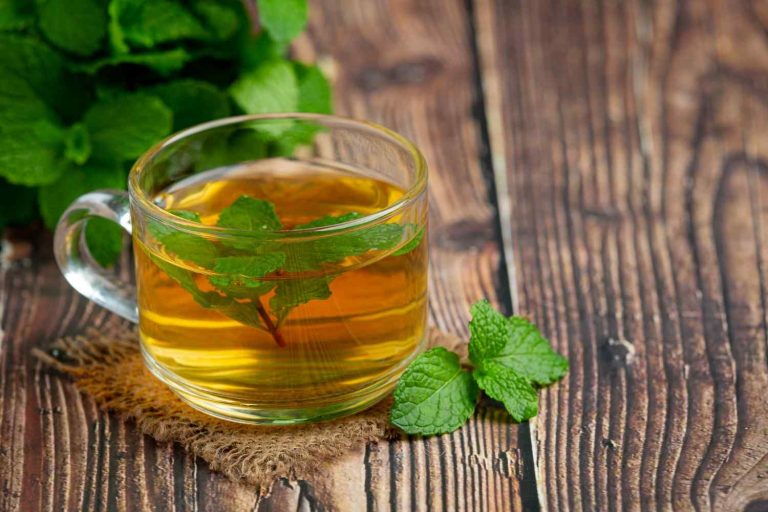Brain cognitive herbs are a group of plants and extracts that help sharpen attention, support memory, and steady your mental energy. They’re not magic pills. They’re targeted tools that, when chosen and used the right way, change how your mind shows up for the day. That matters because your work, your relationships, and the small victories of daily life ride on your ability to focus.
You’ve probably felt the difference between noise and clarity. I talk to people who’ve tried late-night caffeine, sugar fixes, and endless task lists. When those stop working, they reach for natural helpers. I’ve watched a careful handful of botanical choices restore not just attention, but calm confidence. That’s the honest payoff.
Science is catching up. Research from government and university labs highlights mechanisms behind these plants, improved blood flow, reduced oxidative stress, and support for neurotransmitters. Those are real pathways to better concentration, and you should know them before you spend a dime.
Contents
7 Ways Brain Cognitive Herbs Boost Focus
Here are seven clear, practical ways certain botanicals give you a sharper mind. I’ll show how they work, how to use them, and what to watch for. No vague promises—just plain results and caution where it counts.
Nourish The Chemicals Of Attention
Your brain runs on chemistry. Specific nutrients and active plant compounds feed the enzymes that make dopamine, acetylcholine, and other transmitters you need to focus. For many people, a targeted botanical supplement supplies cofactors the diet leaves behind.
When you replace thin energy with proper fuel, attention becomes steady. That’s not mystical. It’s biology. Use extracts standardized for active compounds, and pair them with a complete meal so absorption isn’t a guessing game.
Reduce Mental Fatigue
Fatigue is a thief. Adaptogenic plants calm the physiological response to stress so your mind doesn’t burn through reserves early in the day. This reduces that mid-afternoon free-fall where ideas evaporate and patience disappears.
People often notice a smoother energy curve—less crash, less jitters. That’s what makes these choices so useful for long workdays or creative bursts that need endurance.
Sharpen Signal Transmission
Think of neurons as tiny messengers. Better blood flow and membrane stability speed the messages. Certain botanical extracts dilate small vessels and keep membranes supple, which improves clarity and recall.
That’s why some prescriptions and supplements target circulation and synaptic strength. Improved delivery means the signals get where they need to go, fast and clean.
Protect Against Oxidative Damage
Free radicals and inflammation dull thinking. Antioxidant-rich botanicals scavenge that damage and protect the tiny machines inside cells. Over time, this translates to clearer, more resilient cognitive function.
Protection is proactive medicine. It stops the slow wearing down that turns bright focus into fog.
Support Neuroplasticity
Neuroplasticity is the brain’s ability to rewire and learn. Certain plant compounds encourage growth factors and synaptic remodeling. That helps you learn faster and retain what you work on.
When you combine targeted practice with compounds that support growth, your effort compounds. It’s an honest way to get smarter about the things you care about.
Balance Inflammation
Chronic, low-grade inflammation sneaks into the brain and blunts attention. Anti-inflammatory botanicals reduce that background noise, so concentration feels easier and less forced.
Addressing inflammation is often the missing piece for people who feel like supplements aren’t working. Reduce the inflammation, and the rest of your cognitive toolkit performs better.
Enhance Sleep And Recovery
Focus is built on rest. Some botanicals regulate sleep cycles and improve sleep quality, which is essential for memory consolidation and next-day attention. Good overnight repair leads to sharper days.
Use sleep-supporting herbs carefully—they’re not sedatives for every evening. The goal is deeper recovery, not grogginess in the morning.
How To Use Brain Cognitive Herbs Safely
Start modestly. Try one change at a time so you can tell what helps. Begin with a low dose and increase only if you feel benefit and no side effects. If you’re on medication, run it by a clinician—many botanicals interact with pharmaceuticals.
Look for scientifically backed extracts. When manufacturers list the active compound and the standardization, you’re less likely to get an inconsistent product. If a vendor hides ingredients behind proprietary blends, be skeptical.
Choosing Quality Brain Cognitive Herbs
Quality is everything. Third-party testing for purity and potency should be non-negotiable. Search for certificates of analysis and independent lab checks. That’s how you avoid contaminants and get the effects you expect.
Botanical identity matters: the Latin name, the part of the plant used, and the extraction method all change outcomes. If a label is vague, pick a different bottle.
Dosage And Timing
Timing affects how you’ll feel. Some stimulatory extracts work best in the morning. Others that support calm focus or sleep should be taken in the evening. Read the evidence and follow suggested dosing, adjusting slowly.
Keep a short log for two weeks. Note dose, time, and mood. That simple practice tells you what’s working and what isn’t.
Side Effects And Interactions
Botanicals are biologically active. Expect potential side effects: mild stomach upset, sleep changes, or jitteriness in sensitive people. That doesn’t mean they’re unsafe, just that you must respect them like any medicine.
If you’re pregnant, nursing, or on blood thinners, certain herbs aren’t for you. Talk to your healthcare provider and use reputable resources to check interactions before starting anything new.
Who Should Avoid Them
Certain medical conditions and medications make herbal choices risky. If you have an autoimmune disorder, liver issues, or are on multiple prescriptions, get professional guidance. Safety first—results second.
Blends Versus Single Herbs
Blends can be convenient and synergistic. Single extracts let you isolate an effect. Both have value. If you’re trying an herb for the first time, start single so you can evaluate it clearly. If you want broader support, a well-formulated blend can save time.
Real Examples And Research
There’s growing clinical evidence for several botanicals. Some trials show improved attention and memory performance with standardized extracts. University and government research programs publish data that help separate hope from hype.
Look up peer-reviewed trials and institutional summaries. They’ll tell you which compounds have repeatable effects and which remain anecdotal. Use those trusted sources to guide decisions.
Practical Tips To Maximize Benefit
Pair botanical support with basics: regular sleep, balanced meals, hydration, and short focused work blocks. Herbs aren’t substitutes for these foundations. They amplify what you already do well.
Rotate thoughtfully. Long-term tolerance can blunt effects. A few weeks on, a week off, or cycling between supportive extracts prevents plateaus and keeps your responses fresh.
Bottom Line
Bottom Line: If you want sharper days and kinder focus, responsibly chosen brain cognitive herbs can be the nudge your brain needs. They work best when paired with sleep, nutrition, and sensible stress management. Start small, choose quality, and treat botanicals with the respect you give any effective tool.
Go forward with curiosity, not desperation. A thoughtful approach gives you steady results and keeps your brain healthy for the long haul.
FAQ
Are these herbs safe for long-term use?
Many are safe when used as directed, but safety depends on the specific herb, dose, and your health profile. Rotate use and consult a healthcare provider for long-term plans.
How quickly will I notice improvements?
Some people notice subtle changes in days; others take weeks. Memory and learning effects tend to appear after consistent use for several weeks.
Can I stack multiple herbs together?
Yes, but build slowly. Start with one product, assess effects, then add another. That way you can identify benefits and side effects clearly.
Where should I look for credible product information?
Choose manufacturers with third-party testing, clear labeling, and transparent sourcing. Academic and government websites also summarize the scientific evidence for many botanicals.
A visual line above. The paragraph above gently separates the article from source references to help you verify the research and read deeper.
References
National Institutes of Health provides an overview of herbal supplement research and clinical data (http://www.nih.gov).
PubMed lists peer-reviewed clinical trials and reviews related to cognitive botanicals and their mechanisms (http://pubmed.ncbi.nlm.nih.gov).
Mayo Clinic offers practical guidance on herbal supplements, safety, and interactions for patients and clinicians (http://www.mayoclinic.org).
University research centers publish detailed studies on specific compounds and standardized extracts that inform dosing and efficacy (http://www.harvard.edu).
Get Your FREE Natural Health Guide!
Subscribe now and receive our exclusive ebook packed with natural health tips, practical wellness advice, and easy lifestyle changes, delivered straight to your inbox.




